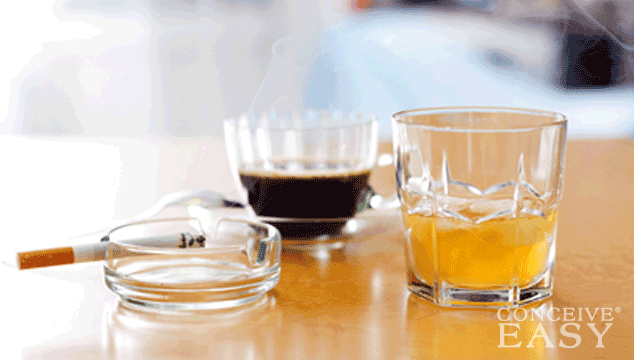![]() The information provided by our expert should not constitute a diagnosis of your condition. Always consult a medical practitioner or healthcare provider for a formal diagnosis. By making use of this content, you agree that ConceiveEasy and the expert assume no liability.
The information provided by our expert should not constitute a diagnosis of your condition. Always consult a medical practitioner or healthcare provider for a formal diagnosis. By making use of this content, you agree that ConceiveEasy and the expert assume no liability.
Sometimes becoming pregnant is challenging for women. Things can affect their health very easily and make it hard for them to ovulate. Usually, doctors suggest that you live a healthy lifestyle and eat healthy foods while you are trying to conceive because of these types of problems. Claim Your 20 Free Pregnancy Tests – Click Here
However, there are actually some specific items that can make it harder for you to conceive than others. For example, drinking alcohol and caffeine have been shown to make it harder for a woman to conceive. Here is some information to help you learn more about these substances.

Alcohol is definitely something you will want to abstain from when you do become pregnant. However, research shows that it can actually hinder your chances of becoming pregnant in the first place. Along with causing issues with a fetus, alcohol can actually make it harder for you to become pregnant because it actually lowers fertility.
The amount that it decreases fertility will vary from one woman to the next, but studies show that it begins affecting a woman’s body after just one drink per day. In addition to this, males are affected by drinking alcohol because it can actually decrease the number of sperm that their body produces. So, it is usually best for both men and women to avoid drinking alcohol while they are trying to become pregnant.

Likewise, caffeine is also something that is suggested that women avoid while they are pregnant. It is also something that can make it harder to become pregnant. Unfortunately, studies have found it difficult to pinpoint exactly how caffeine affects fertility, but the agreement is that it does. Generally, drinking a couple of 8-ounce cups of coffee per day are considered safe and will not usually affect fertility.
Along with the things you drink, you should also be careful about keeping a watchful eye on the food you eat. Many foods and medication actually contain caffeine, which could put you well above the desired amount for your day. To help with this situation, make sure you are reading labels and watching the total amount of caffeine that you are consuming from one day to the next.
Although there are other fertility myths that we believe are true, caffeine and alcohol is not one of them. In the long run, it is best to avoid drinking alcohol or caffeine as much as possible while you are trying to conceive. While small amounts may not hinder your chances of conceiving, they can definitely cause issues if you are not careful. This is especially true for couples who are already struggling to conceive in the first place.










Comments